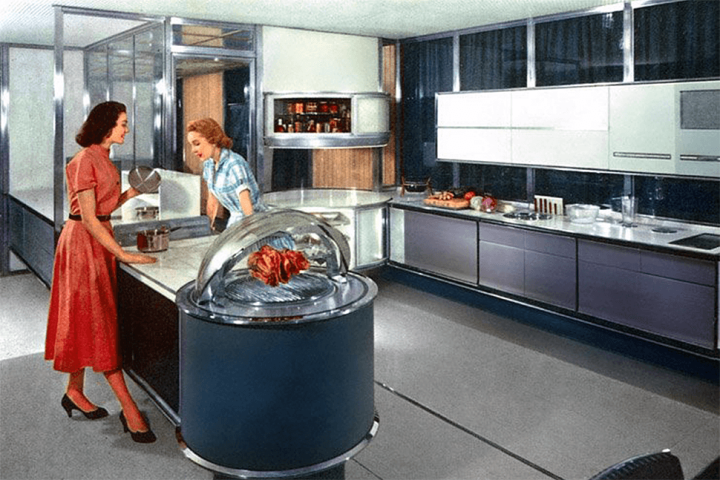
It’s the dream of the smart kitchen, and these were all ideas discussed at this week’s Smart Kitchen Summit in Seattle. The summit brought together designers, CEOs, and leaders in the kitchen space, all of whom see the potential to simplify lives, reduce waste, and help people make better decisions about what they eat. While the end result is meant to be seamless and intuitive, it’s still a new space and there have been bumps along the way. How many people do you know who have a connected coffee maker?

“Habits are hard to change,” said Steve Joseph, president of Dacor. The company makes smart ovens with voice-recognition technology, but in this case, he was talking about something less futuristic: pure convection. It’s a technology that only 30 percent of its customers have embraced, though it cooks food faster and more evenly. It wasn’t surprising to many speakers that consumers have been slow to embrace a smarter kitchen.
“People are not going to go looking for the smart kitchen,” said Madhuri Eunni, founder and CEO of SKE Labs, which makes the Neo, a smart jar that helps you keep track of what’s in your pantry. The key, she says, is to create an experience so intuitive, users don’t even necessarily realize the product is smart. “An 80-year-old guy now looks at a smartphone now and thinks that’s the natural way to talk to and keep in touch with his grandchildren,” she says. “They don’t think that it’s a smartphone; they think that it’s a way to keep in touch with their grandchildren.”
But new products for the smart kitchen are coming fast and thick, and they’re not all winners. Many people might see a benefit, but the cost is too high. Others might make the investment and find the experience is clunky and more difficult than the “dumb” solution. “My concern is, in these early stages in the infancy of the smart kitchen, if some of the bigger products that go out there give consumers poor experiences, they’ll be turned off to the whole smart kitchen, as a whole ecosystem,” said Steve Cho, connectivity program manager for Electrolux North America.

Another problem is that with everyone getting into the space, there are competing platforms and protocols. Even if you want everything in your kitchen to talk to each other, there’s not necessarily a guarantee that it will. “Kayak has been very successful at creating a consumer experience that is agnostic to the airline,” said Alejandro Pena, president of Jarden, which manufactures and distributes a number of brands like Crock-Pot and Mr. Coffee. “Who’s going to be the Kayak of the kitchen?” Right now, there’s a lot of onus on consumers to set up everything themselves and ensure this product works with that. To really be proficient in the smart kitchen, you need to know how do more than prepare meals; you have to execute If-This-Then-That recipes.

There seemed to be some differences in opinion when it came to putting smart technology in existing tools, like a connected Crock-Pot. For some, it’s a good start, while other speakers think it’s not enough to dramatically change the kitchen. “What I’m not seeing and makes me somewhat, I suppose, sad, is there’s not a lot of innovation in tools that make the impossible possible, where you’re now able to something in the kitchen that your mother couldn’t do, your grandmother couldn’t do, your great-grandmother couldn’t do,” said Chris Young of ChefSteps. “You want to have tools that are unrecognizable to people from 100 years ago and enable the future of cooking.” Lamenting that there hasn’t been a really new of cooking that’s been adopted by the mainstream since the microwave, he admits that sous vide has that potential.
And while Young thinks more actual chefs need to get involved in designing these new tools, John Kestner of Supermechanical said that everyone who’s working on these products loves and is patient about food: “Otherwise, we’d all just give up and drink Soylent.”


